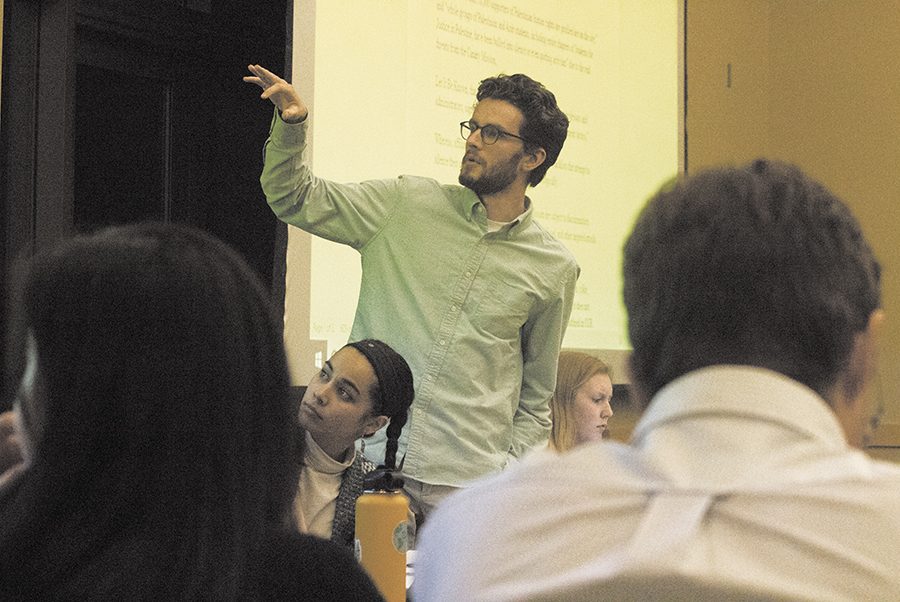SGA election applications at a high
With SGA senate elections coming up April 9 and 10, SGA President Ethan Foley, a junior, makes a speech at the SGA meeting April 2. The election is contested for the first time in two years with 49 candidates vying for 39 seats.
April 8, 2019
This year’s SGA senate elections are contested for the first time in two years.
By 4 p.m. April 5, senior Meghan Driscoll, SGA Elections Committee chair, received 49 election packets of those competing for the 39 senate seats, she said. Driscoll attributed the number to increased campus engagement.
“This is the most we’ve seen in a little while, so we’re really excited,” Driscoll said.
The candidates’ platforms can be found April 8 on SGA’s website, she said.
A link will be sent out to students’ emails the morning of April 9, opening voting until it closes April 10, when those elected will have 24 hours to accept their positions.
“If you want to have your voice and your problems and your suggestions heard, then it’s important to look closely at who is running,” Driscoll said. “Look at what all of these candidates have to say.”
Daphne Wells, director of student life, said SGA elections give students a say in how things like how their student fee money gets spent, what issues to bring before administrators and more.
“Any suggestions, concerns, wants or needs that the student body has, ideally SGA will be connected enough to the student body via their senators and their committees to know what those are,” she said.
SGA is supposed to help bring the issues raised by students and activists on campus to administrators and help them see what can be done to address those issues, Wells said.
Sophomore Aidan Doherty, current chair of the Student Action Committee, is running for reelection as a senator.
He plans to run within SGA for the position of speaker if he wins his senator election, he said.
Doherty sees SGA as the way for students to amplify their voices and make change on campus, he said.
“Don’t do it for you. Do it for the people whose voices aren’t being heard,” he said.
Voting is important both for individuals and for helping those who are especially vulnerable or overlooked on campus, he said.
“The best way to address those issues is through the senate. There is no organization whose goal is to so holistically look out for the University of Vermont student.”
SGA can help students navigate the University bureaucracy and get the issues they care about addressed by administrators, Doherty said.
“Go to your regular Queer Student Union meeting, continue voting in your local elections and continue playing your instrument down at the music hall, but at the end of the day we all need to come together for SGA.
“It has to be SGA in the coming years,” he said.








